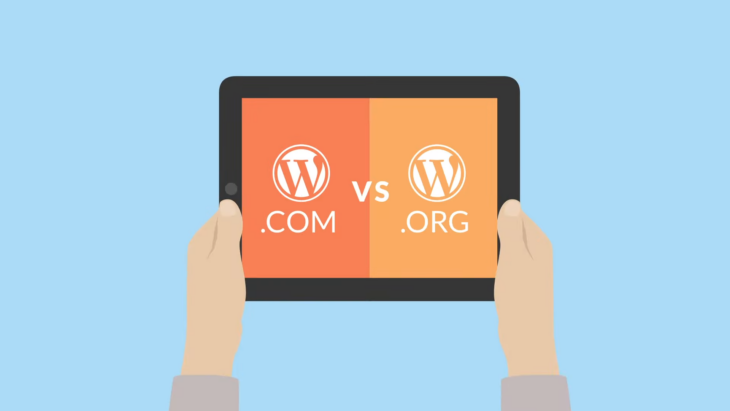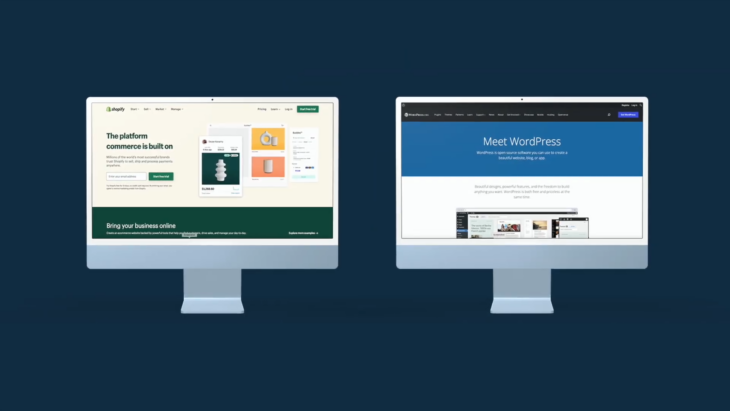Choosing an appropriate hosting platform for an eCommerce website is an important step that could notably impact the fulfillment of your online business. WordPress, a surprisingly famous content material management gadget (CMS), has emerged as a capability platform for carrying out online trade.
Its inherent flexibility, coupled with a huge array of plugins and themes, has made it an appealing alternative for eCommerce marketers. While WordPress itself is free to use, there are related fees whilst adapting it for eCommerce.
The platform gives a variety of plugins that upload eCommerce functionality, but it is critical to pick out the right hosting environment to ensure your web page’s overall performance and reliability. When we recognize all of the basic info, let’s take a look at it in greater detail.
Table of Contents
ToggleKey Takeaways
- WordPress is a flexible choice for eCommerce, offering numerous plugins and themes.
- Hosting selection is crucial for site performance and the overall success of an online store.
- Analyzing both the advantages and challenges of WordPress hosting can lead to informed hosting decisions.
Choosing the Right Hosting
When it comes to launching your eCommerce internet site, selecting the right website hosting is crucial to your achievement. It’s essential to understand the differences between WordPress.Org and WordPress.Com, in addition to what website hosting functions are fundamental for an internet store.
WordPress.org vs WordPress.com

WordPress.org is the self-hosted model wherein you have complete manipulation over your website online. It lets you to install your preference of a tremendous array of subject matters and plugins to customize your eCommerce web page to your liking. You’re chargeable for locating a hosting company, which offers you the ability to pick out one that tailors to eCommerce desires.
WordPress.Com is a hosted platform that’s less difficult to install however comes with barriers. While it handles hosting for you, it restricts the themes and plugins you could use until you pick out a higher-priced business plan.
For a full-fledged eCommerce site, WordPress.org typically offers more adaptability and growth potential than its hosted counterpart. If you don’t know where to start looking for the one that serves your needs the best, you can read more about one of the options.
Essential Hosting Features for E-commerce
When reviewing hosting options for your WordPress eCommerce site, prioritize the following features:
- Uptime Guarantees: Look for 99.9% uptime to ensure your store is always available to customers.
- Performance: Optimal site speed is crucial; solid-state drives (SSD) and caching technologies can help achieve this.
- Security: Secure Socket Layer (SSL) certificates are a must for protecting customer data. Additionally, look for hosts offering regular backups and malware scanning.
- Support: 24/7 customer support can be invaluable, especially if you’re not technically inclined.
- Scalability: As your business grows, your hosting plan should grow with you, offering easy upgrades to resources without downtime.
What are the Advantages?

When considering WordPress for your online store, you’ll find several compelling advantages that can contribute to a successful digital commerce presence, including flexibility and customization, a variety of e-commerce solutions, as well as robust SEO and marketing features.
Flexibility and Customization Options
WordPress offers tremendous flexibility because of its open-source nature. Customization is one of its strongest points—you have the energy to adjust nearly every issue of your shop. With admission to hundreds of issues and plugins, tailoring your site’s aesthetic and capability may be finished with relative ease.
- You can select from a plethora of issues, both loose and top rate, to health the look and experience you need for your e-commerce website.
- An extensive variety of plugins are at your disposal to extend your website online’s competencies, from price gateways to product management.
Variety of E-commerce Solutions
Your e-commerce solution can be as simple or complex as you need it to be. The most notable plugin is WooCommerce, a powerful and versatile e-commerce plugin that seamlessly integrates CMS with a website.
- WooCommerce: This plugin turns your site into a fully-fledged e-commerce platform, allowing you to manage inventory, take payments, and handle shipping.
SEO and Marketing Abilities
WordPress is known for its strong SEO framework, which makes it easier for your site to perform well in search engine rankings.
- Plugins like Yoast SEO guide you in optimizing your content and technical SEO, which can drive more organic traffic to your store.
- You can effectively promote your products on various social media platforms such as Facebook, Twitter, and Instagram using its marketing tools and plugins, extending your reach and engaging with customers.
What About Challenges?
When you decide to use WordPress hosting for your eCommerce site, understanding the challenges and considerations is crucial. These challenges relate directly to security and maintenance, the performance and scalability of your website, and the cost implications that accompany running an eCommerce platform.
Security and Maintenance Concerns

Your eCommerce site’s safety is paramount. It’s vital to often update your website online and install a protection plugin to defend purchaser statistics and prevent breaches. You ought to additionally put money into an SSL certificate to guard transactions and personal information. Regularly backing up your website is essential, as well, to recover quickly in case of any unexpected events.
Performance and Scalability
For your store to run smoothly, you need robust performance and the ability to scale. Make sure your website hosting can cope with excessive visitor volumes and boom. Using a Content Delivery Network (CDN) like Cloudflare can enhance website speed and overall performance. It’s crucial to make sure your hosting plan can scale with your business without considerable performance hitches.
Cost Implications
Running an eCommerce site on this CMS involves various costs. Beyond hosting fees, you may encounter costs for premium themes and plugins that extend functionality. Also, consider transaction fees that might be charged by eCommerce platforms or payment gateways. While it is free, these additional costs can add up, so plan your budget accordingly.
Making an Informed Decision

When selecting WordPress for your eCommerce hosting needs, it’s vital to carefully assess both the advantages and limitations of your specific business requirements. Your final decision could significantly impact your online store’s functionality and scalability.
Evaluating Pros and Cons
Pros
- Flexibility: You can customize an array of themes and plugins to match your brand and enhance user experience.
- Scalability: Start with shared hosting and upgrade as your business grows.
- Community and Support: A robust community and access to expert assistance offer resources for troubleshooting.
Cons
- Learning Curve: Some technical knowledge is required for setup and ongoing management.
- Security: Vigilance is needed to protect your site as eCommerce sites are specific hacking targets.
- Performance: High traffic volumes require advanced hosting plans to maintain speed and uptime.
Comparing WordPress with Other E-commerce Platforms

When comparing WordPress with alternatives, consider the following aspects:
- WordPress requires some technical skill, unlike some plug-and-play solutions.
- WordPress offers a free entry point; however, additional costs for plugins, themes, and hosting can add up.
- It exhibits superior customization options compared to many hosted eCommerce platforms.
- Access to multiple payment gateway options is available, though integrating them can require plugins.
- Abundant sales tools and eCommerce-specific plugins such as WooCommerce empower WordPress users to expand store functionality.
FAQs
Is WordPress Free to Sell Products?
WordPress as a platform is unfastened to apply, but promoting products on your website typically requires a website, website hosting, and potentially premium plugins or topics. Depending on your desires, you might come up with extra prices for eCommerce capability, consisting of payment gateway fees.
Does WordPress Host for Free?
WordPress gives a free web hosting plan on WordPress.com, but it comes with barriers that might not be healthy for a growing e-commerce business. For full control and higher eCommerce features, maximum customers opt for self-hosting with the WordPress.Org software program.
Is Shopify Better than WordPress?

Determining whether or not Shopify is better than WordPress for your online shop depends on your particular wishes and skills. Shopify gives a more out-of-the-box, consumer-friendly solution with dedicated assistance, whilst WordPress with WooCommerce offers greater customization options and potential value financial savings if you control the website yourself.
Is Shopify Better than WooCommerce?
Choosing between Shopify and WooCommerce comes right down to desire and your consolation with generation. Shopify is a hosted answer it truly is typically simpler to use but can be more luxurious over the years. WooCommerce is a loose WordPress plugin that gives you greater control and flexibility but requires greater renovation and technical information.
Final Reflections
When looking for WordPress as your eCommerce website hosting answer, it’s crucial to objectively verify the benefits and barriers it provides. On the plus side, it is an unfastened, open-supply platform with significant customization options, way to its sizeable choice of plugins and topics.
Your decision has to align with your enterprise’s unique needs, knowledge degree, and long-term desires. Evaluate your assets and consider if WordPress can deliver the web shop reveal in your envision to your clients. It is essential to carry out due diligence, contemplating all factors – both technical and monetary – to make an informed choice.

